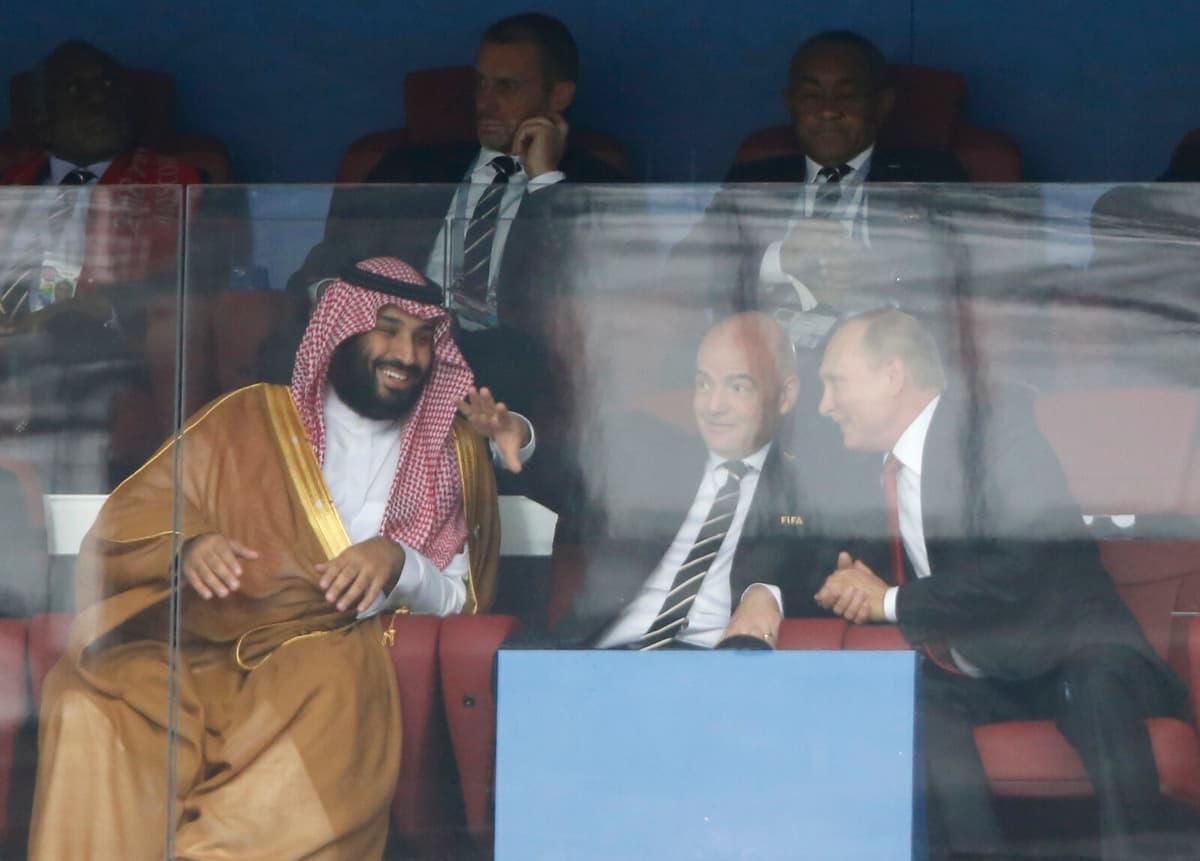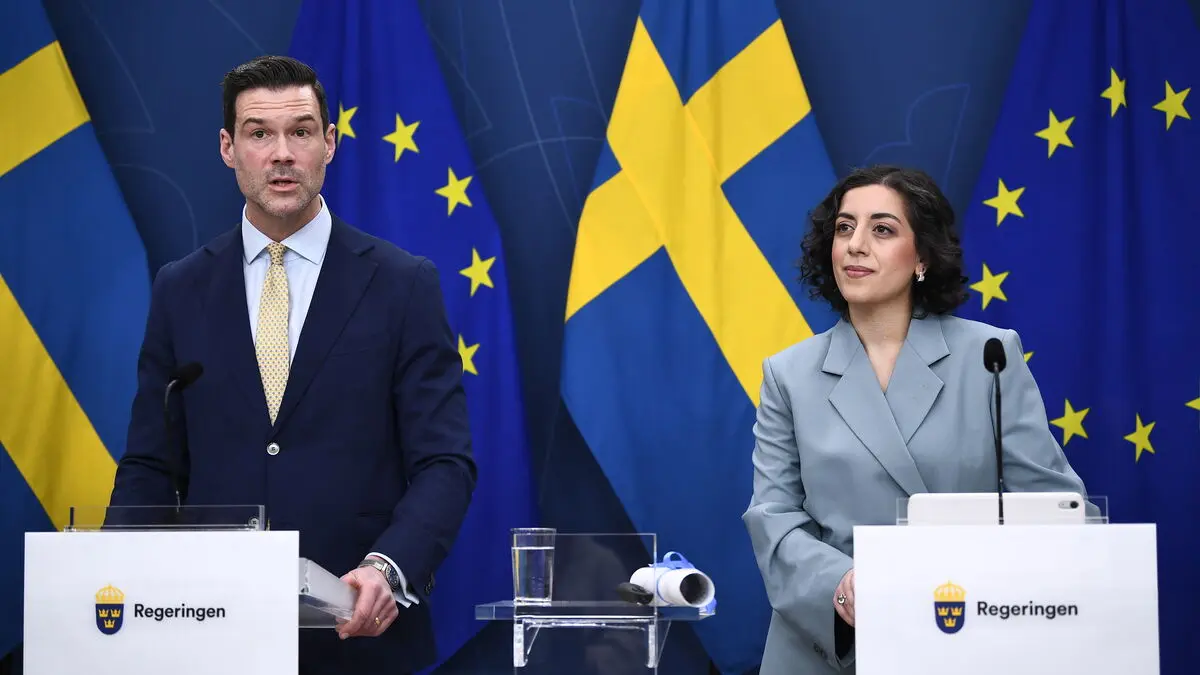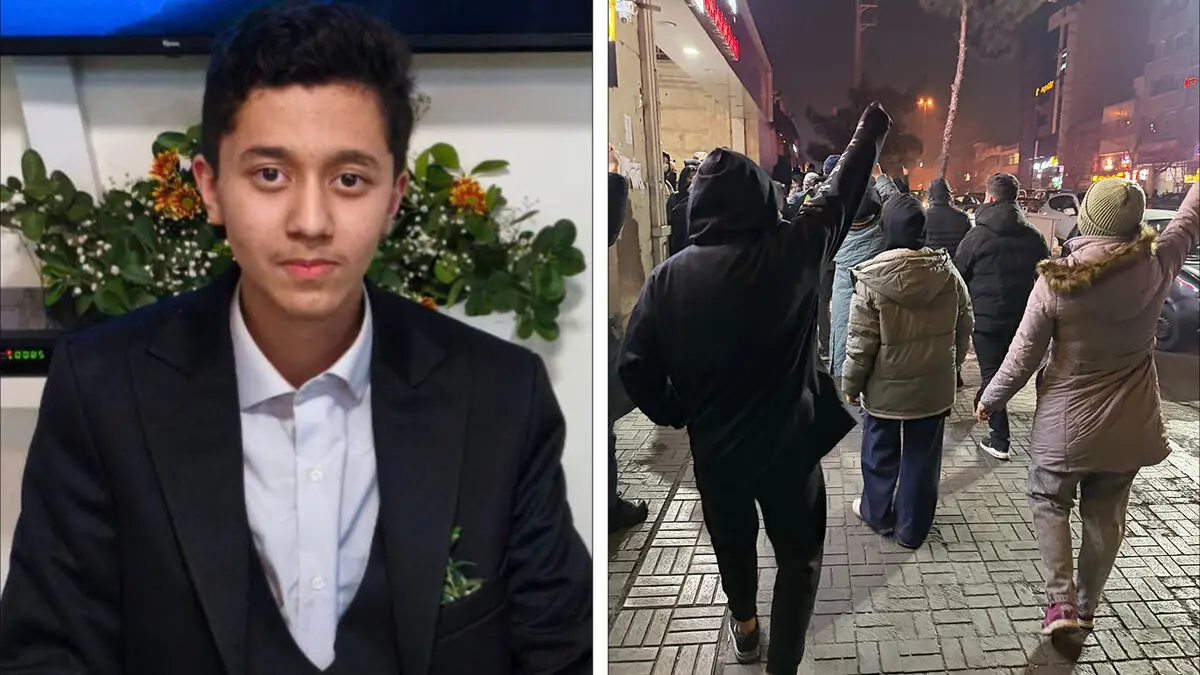On Wednesday, Saudi Arabia will be awarded the 2034 World Championship in football – there is no opposing candidate. In its evaluation of the bid, the International Football Federation (Fifa) writes that a championship in the country can act as a "catalyst" for reforms and that the tournament can lead to a positive development for human rights in the authoritarian state.
It will only happen when the Saudi people get their voice back, but right now, we have no voice, says Lina al-Hathloul, who works in exile for the Saudi human rights organization ALQST.
Sister in Torture House
It has been seven years since she last visited her home country. In the spring of 2018, the Saudi security police stormed her family's home and arrested her sister Loujain, who had been fighting against the male guardianship system and for women's right to drive.
She disappeared for a few weeks, and later we found out that she had been subjected to torture in a torture house. Our entire family was banned from traveling, which still applies.
Her sister was sentenced to nearly six years in prison, but was released early in 2021. During her years in prison, Loujain was subjected to numerous abuses.
Women can drive now, but those who led the way are under travel bans or are still in prison. The system of male guardianship is still active in practice.
What tourists and businessmen see in the country is a facade, she says. The rule of law has been completely dismantled since Crown Prince Mohammed bin Salman effectively took power in 2017. Just this year, a record 309 people have been executed in the country, according to ALQST.
With his security police, Mohammed bin Salman has created a society filled with fear. They can arrest anyone they want, have their own prison, and people can just disappear. Before, you could find information about what happened, but that's no longer possible.
Threatened in the Royal Family
Mohammed bin Salman came to power in 2017 after two other crown princes were deposed. That year, he was also behind the detention of nearly 400 princes, military personnel, and other high-ranking officials at the luxury hotel Ritz-Carlton in the capital Riyadh.
He knows he is threatened within the royal family. He is the son of the current king, but he does not know what will happen when his father dies. He believes that everything can be the start of a rebellion against him, which is why he can sentence people to death for a tweet.
The World Championship is seen as the crown jewel in his multi-billion investment in sports in recent years, and with this form of support from the outside world, the crown prince can maintain his power in the country.
Saudi Arabia has bought the World Championship and bought the world's silence, which allows him to sweep his abuses against the people under the carpet, says Lina al-Hathloul.
The Ritz-Carlton will also be in the spotlight in 2034 – Fifa's VIP guests will stay at the luxury hotel during the World Championship.
In its evaluation report on Saudi Arabia's hosting of the 2034 Men's World Championship, the International Football Federation (Fifa) writes that there are "good opportunities for the championship to function as a catalyst for some of the ongoing and future reforms" in the country and that it can "contribute to positive results around human rights in Saudi Arabia".
It is "medium risk" that a World Championship will negatively impact human rights, according to Fifa.
An evaluation – commissioned by Saudi Arabia and part of their application – of how the World Championship can affect human rights in the country is biased and a whitewash of the situation in the country, according to Amnesty International and ten other similar organizations.
The evaluation was conducted by a Riyadh-based branch of the global law firm Clifford Chance, which allegedly helped Crown Prince Mohammed bin Salman to seize assets from the nearly 400 princes, military personnel, and officials detained at the luxury hotel Ritz-Carlton in November 2017.
Before the awarding of the World Championship, there is a strong bond between Fifa and Saudi Arabia. Last spring, state-owned Aramco – one of the world's largest oil companies – became a global sponsor of Fifa until 2027. The agreement is estimated to be worth over 100 million dollars per year. It gives the company the right to be visible in connection with, for example, the 2026 Men's World Championship and the 2027 Women's World Championship.
Saudi Arabia, which makes up the larger part of the Arabian Peninsula, is an absolute monarchy ruled by the royal family (House of Saud).
King Salman, 88, succeeded his half-brother Abdullah in January 2015, after the latter's death. Later in 2015, King Salman deposed his half-brother Muqrin from the post of crown prince in favor of his nephew Muhammad bin Nayif. The king's son, Mohammed bin Salman, became vice crown prince. It was the first time in Saudi Arabia's history that a crown prince was deposed.
In the summer of 2017, Muhammad bin Nayif was deposed, and Mohammed bin Salman, also known as MBS, became crown prince.
MBS has since gained increasing influence over politics in the ultra-conservative country. After a royal decree in 2022, the crown prince is now also the country's prime minister.
Saudi Arabia has no political parties and no elected parliament. The government is based on the Koran and Islamic law, sharia.
Human rights groups such as Amnesty International and Human Rights Watch (HRW) regularly accuse Saudi Arabia of arbitrary arrests, torture, and death sentences, which are also imposed on children.
Source: National Encyclopedia, Country Guide/UI.
The hosting of the 2030 and 2034 Men's World Championships will be decided at an extraordinary Fifa congress on Wednesday. The congress will be held digitally.
Saudi Arabia is the only candidate for 2034. Co-hosting Spain, Portugal, and Morocco are the only candidates for the 2030 World Championship. Then, the first three matches will be played in Uruguay, Argentina, and Paraguay in South America. This is to commemorate that it was 100 years since the first World Championship was held in Uruguay (1930).
The championships will be approved jointly and according to the Norwegian Football Association via acclamation, i.e., without a formal vote.






